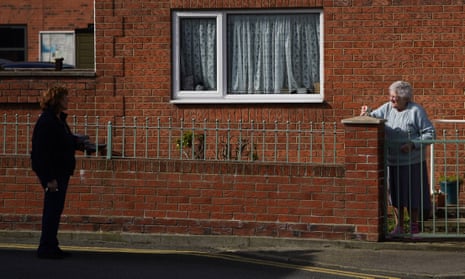All the things that were taken to be self-evident a couple of weeks ago are no longer so. That is how fast this epidemic is spreading. Having known liars in charge of telling us the truth – whether Boris Johnson or Donald Trump – does not help. “Truth is mighty and will prevail,” said Mark Twain, before adding: “There is nothing wrong with this, except it ain’t so.”
It certainly ain’t so and what we are seeing is mass cognitive dissonance. That is the stress produced when people seek some kind of consistency between how they think life is and what we may call reality. It is really discomforting to be given information that does not fit in with your beliefs. This results in denial or in justification for actions that do not fit the situation. Sometimes we may simply refuse to believe what we are told, attempting to resolve the contradiction between our inner and outer worlds by believing whatever we want to believe. This is precisely why behavioural changes are so hard to make and why messages have to be clear. Cognitive dissonance is coming from the top down, as well as from the bottom up. There is little difference between a government reluctance to announce a lockdown and people having barbecues together in the parks. It is way easier to blame all this on Johnson’s adviser, Dominic Cummings, than to see it as a collective political failure. If anyone needs to “take back control” it is each of us now.
Yet the force to accept what is happening is strong in some, much weaker in others. The professional heretics say all this talk of the need for a lockdown is rubbish: Brendan O’Neill, the man from Spiked who wants his pint, despite the risk that the people who serve it may become ill; and my old mucker, Mail on Sunday columnist Peter Hitchens, who once hurt his shoulder but didn’t die, and is now reading an awful lot into that fact. Such people make their living from disputing the truth. They are so edgy, their truth may mean people dying.
A belief in one’s own invincibility is now out of time and out of touch. These guys remind me of those fools who die taking selfies as they fall off a cliff. I am not invincible either, which is tough, right? My world has been shaken. I am as anti-authoritarian as they come, but I have to square that mindset with one essential word: Italy. That is what makes me think the state has to lock us down.
Many things we thought were true a few weeks ago no longer are. Here are a few. Borrowing loads of money was bad for the state and now it isn’t. Being a shelf stacker or a carer was a lowly job fit only for migrants – now those jobs are recognised to be important. Rail services can’t be trusted to run themselves; nationalisation is suddenly uncontroversial. The free market cannot provide.
We have decided that private hospitals have to be made public. That school isn’t really about learning; a lot of it is just childcare and lessons can be done in an hour a day. Why have we been testing our kids into a state of self-harm all these years, and why have qualified teachers been doing childcare? Shopping is not the meaning of life. The BBC is quite good. Social media may help as well as hinder. Celebrities are the most dispensable group ever. (Literally no one cares about their incessant health updates.) Our prisons are full of people who don’t need to be there and could be let out. My list grows as my world shrinks.
Some are adjusting more quickly than others to the new world. Others hanker not for what was, even, but for a fantasy past and future: the hashtag #Corbynmuststay has been cropping up on Twitter.
The massive package of state intervention may not be enough, sure, but right now we are having to reconfigure what is left and what is right. The boxes we put ideas and ideologies into have disintegrated. Lifelong beliefs are hard to rethink. To me, rich people have always socially distanced and are still doing so – I don’t want the Queen addressing me from a castle. I care about women trapped in tiny flats with tiny kids.
Nor do I want more tips from freelance writers about how to self-isolate and work from home effecti vely – we were never normal in the first place and while we might be happy on our own, some people need to see other people. I can see from the experiences of my own family that we all have different needs. Each of us will have a meltdown at different times in different ways. As more and more people we know get ill and die, our own mortality draws closer. That’s my emotional truth.
Like many over the past few years I have quoted Antonio Gramsci a lot. Why? Because the man from Sardinia understood the work of culture. Marxists have always been disappointed by the working class, who continually vote against their own self-interest. Gramsci explained how this happened, through his concept of hegemony. The famous quote is: “The crisis consists precisely in the fact that the old is dying and the new cannot be born; in this interregnum a great variety of morbid symptoms appear.”
Some of us have used this vaguely either about the end of capitalism or the end of the left, but I don’t think any of us realised how morbid the symptoms would actually be. You can talk about austerity and the climate crisis, but neither has prompted the sudden reordering of the world in the way Covid-19 has.
We now have to sit with the fact that opposite things can be true. That to help others right now is to be alone. That is how the new can be born. This is the huge psychological effort for all of us, but I say: distance or death. That is the stark choice. We need to spell it out.

